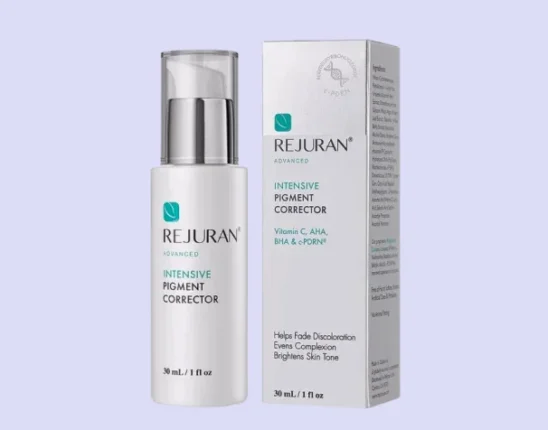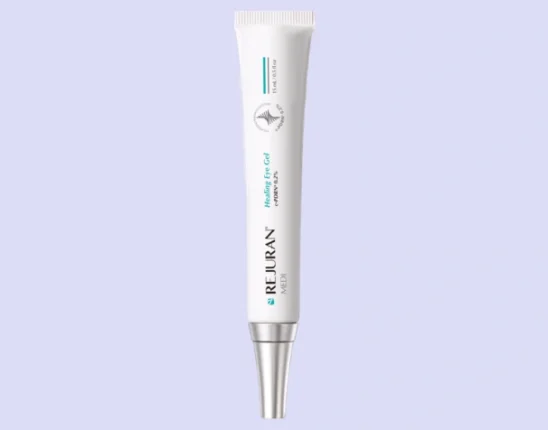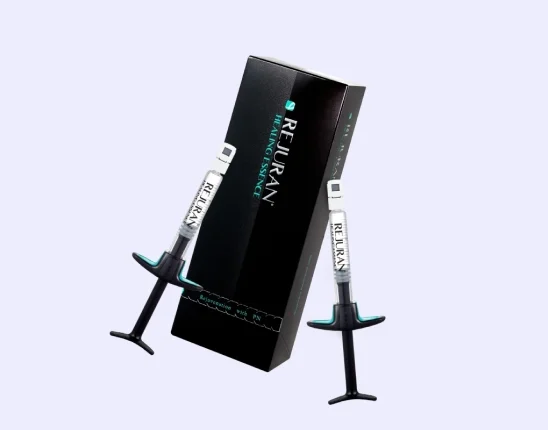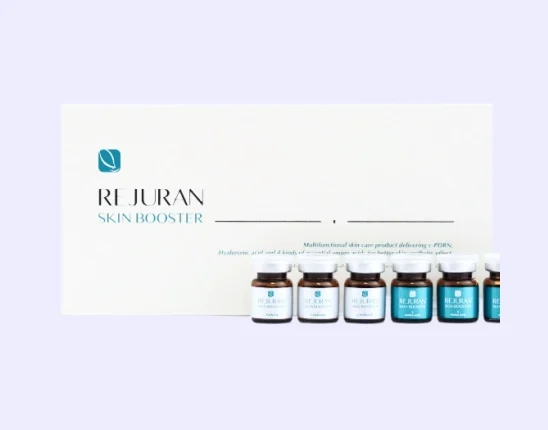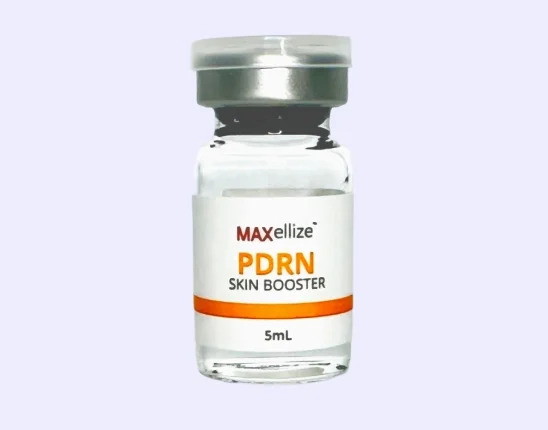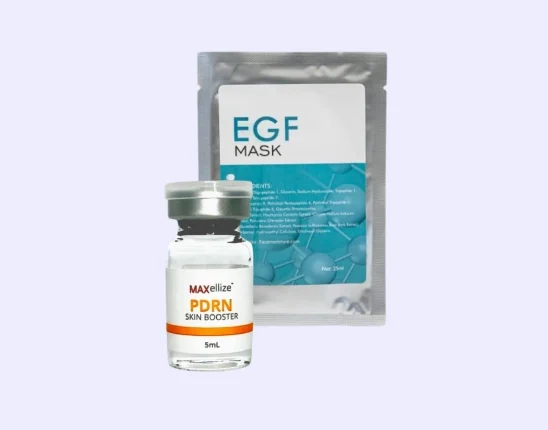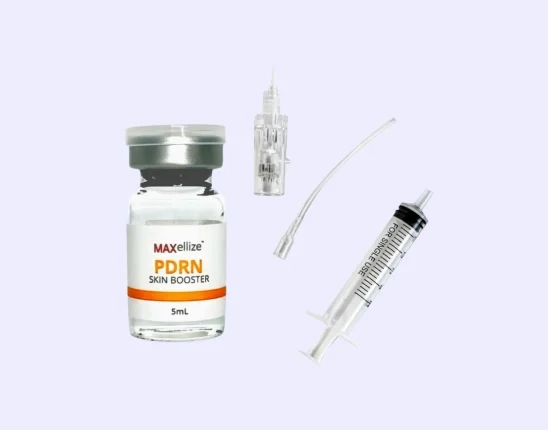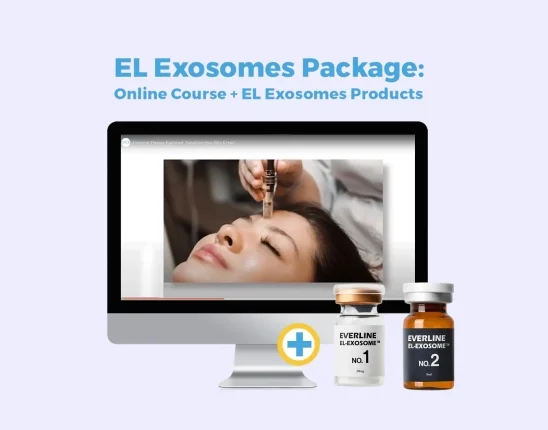Hormones, chemical messengers that regulate many aspects of human metabolism, are implicated as one of the causes of hair loss, particularly dihydrotestosterone, an androgen that’s linked to androgenetic alopecia. As such, it’s also intuitive to look at the possible effects of the levels of other hormones such as insulin-like growth factor-1 (IGF-1), a human growth hormone, on hair loss.
So will too much protein increase insulin-like growth factor-1 (IGF-1) leading to hair loss? It depends because an increase in protein indeed leads to an increase in IGF-1 levels, but it’s actually good for the hair. What’s causing the hair loss isn’t the higher level of IGF-1 per se, but the other nutritional deficiencies that patients exhibit especially when they’re focusing on a high-protein diet.
Why IGF-1 Is Actually Good For Your Hair
Aside from its established role in the regulation of blood sugar levels, studies have shown that an increase in IGF-1 levels is also linked to an increase in 5-alpha-reductase levels. This enzyme is responsible for the conversion of testosterone to dihydrotestosterone (DHT), the hormone that’s said to cause androgenetic alopecia, so it may be thought that IGF-1 may cause hair loss through this process.
Contrary to this, however, another study has shown that the hair follicle growth cycle is influenced by IGF-1 signaling. IGF-1 is said to be a potent mitogenic and morphogenetic regulator, exerting its effect on the growth and survival of follicular cells. IGF-1 is also involved in follicular tissue remodeling. In fact, people exhibit less IGF-1 levels on the dermal papillae of the areas with baldness in contrast to the normal levels exhibited by those with the non-balding scalp.
Additional studies on transgenic mice have also shown that the administration of IGF-1 stimulated hair growth by stimulating hair follicle cell proliferation and promoting the prolongation of the anagen phase (the phase in which rapid hair growth is observed). IGF-1 was also observed in the study to exert inhibitory effects on TGF-B, a catabolic growth factor that may induce hair loss. The study thus provides evidence of the promising effects of IGF-1 as a supplement for the treatment of hair loss.
Commercial Forms Of IGF-1
Insulin-like Growth Factor-1 is available commercially in the form of liquid formulation (in sprays or 1 mg vials) and oral supplement (in tablets or lozenges). Available synthetic forms of IGF-1 include IGF-1 LR3 and IGF DES 1,3 variants which have different structures and different mechanisms of action:
| Structure | IGF-1 LR3 and IGF DES 1,3 are more potent than their parent compound IGF-1, brought by the changes in their structure due to changes in amino acid sequences.IGF-1 LR3 differs from IGF-1 in that it has substituted glutamic acid with arginine at the third amino acid sequence and has an additional thirteen amino acids in its N-terminus. This change in structure makes it bind weakly to the Insulin-like Growth Factor Binding Proteins (IGFBPs), making it exert its pharmacological action to a greater degree.Similarly, IGF DES 1,3 or Insulin-like Growth Factor Desamino 1,3 also has a weaker affinity with IGFBPs thus making it more potent than the parent compound due to changes in its structure, particularly the removal of three amino acids at the N-terminus which are present in IGF-1. |
| Half-Life | IGF-1 LR3 has a longer half-life (20 hours) compared to IGF-1 DES 1,3 (30 minutes), meaning the former stays in the blood longer than the latter but the latter is more potent than the former. |
| Results | Despite the differences in their potencies, IGF-1 and its different variants can provide the benefits of muscle growth in its host through affecting its anabolism (building up). |
The Relationship Between IGF-1 and Protein
Studies show that IGF-1 levels are positively correlated with the intake of protein, mediated intracellularly by the PPAR signaling pathway. That is, a higher protein intake leads to a higher concentration of circulating IGF-1 (although additional studies also show that it depends on the source of protein since it was also shown that cheese protein has no effect on IGF-1 concentration).
Effect of High-Protein Diet on Hair
Restrictive diets have arisen that people who would want to cut down on body mass and lose weight can follow. One of such diets is a high-protein diet, which is done by eating more than the daily intake of protein required by the body (around 50 grams for women and around 60 grams for men) and cutting down on carbohydrates. It works by lessening fluid retention by carbohydrates and letting your body enter into a ketosis state since no excess carbohydrate fuel is available.
High-protein has a lot of drawbacks though. Some people experience headaches, irritability, and bad breath while following this diet. The risk of hair loss is also increased when following this diet because the body isn’t getting the nutrients it needs to function and to cater to hair growth. The stress of a high-protein, low carbohydrate diet also leads the hair follicles to prematurely go through the telogen phase (the resting stage) and shed, leading to thinner hair.
Other Benefits of IGF-1
Aside from the promising effects of IGF-1 in the hair, IGF-1 also has a lot of other benefits to the body due to its regulatory effects on many metabolic processes of the body. For instance, they’re taken by some bodybuilders and other athletes to improve sports performance by promoting an increase in muscle mass and strength. Moreover, aside from performance benefits, IGF-1 also is proven to help in the following:
1) Better Immune Response
Research has shown that IGF-1 is responsible for modulating several aspects of the immune response, such as hematopoiesis (the process in which blood cells including white blood cells are formed) and the development and functioning of the thymus (the body part in which T cells, cells involved in cell-mediated immune response mature).
IGF-1 also exerts regulatory effects on specific immune cells as well such as increasing the survival of T lymphocytes and neutrophils and mediating the antibody expression and class switching of plasma cells.
2) Improvement In Joint Health
A study has shown that IGF-1 has a protective effect against osteoarthritic cartilage degeneration due to its anabolic (building) effect on cartilage metabolism. Another study also has shown that IGF-1 and other growth factors also have a role in cartilage repair through their regulatory effects on chondrocytes. These studies thus suggest promising benefits of IGF-1 against joint pain in osteoarthritis and other diseases associated with damaged joint cartilages.
3) Complements Fat-Burning Regimens
Fat-burning regimens can be complemented by IGF-1 because they’re shown to stimulate the usage of free fatty acid utilization as a fuel source, thus helping burn fats in the process. Better growth of skeletal muscles is also a good way of burning fats.
4) Better Cognition
Despite variations in effect among sex, the IGF-1 levels have been linked to better cognition in many studies. In one study, it was observed that an increased IGF-1 level in women is associated with better cognitive functions such as attention, visuospatial, and global domains.
Another study has demonstrated that cognitive function and gait speed are decreased upon reduction in IGF-1 levels. These effects are consistent with age-related declines in IGF-1 and also puts into perspective the possible anti-aging effects of IGF-1.
Ways To Increase IGF-1
With the mentioned benefits of IGF-1 in the body, especially the hair, it is thus a good idea to help your body naturally boost the production of IGF-1. Despite the positive correlation between protein intake and IGF-1 levels, it is important to note that eating a diet rich in protein isn’t the only way to increase IGF-1 levels of your body. To achieve this effect, you may also consider doing the following:
1) Eat A Balanced Diet
Incorporating foods in the diet that may boost IGF-1 production can obviously increase the IGF-1 levels of the body. These foods include:
- Blueberry or its extract – Aside from boosting IGF-1 production, blueberries are also shown to improve brain blood flow. It can also act as an antioxidant due to the presence of flavonoids.
- Cinnamon or its extract – Cinnamon can regulate IGF-1 signaling. It can also improve brain health and act as an antioxidant.
- Dried plum – Dried plum has antioxidant properties and is loaded with fiber. It is also shown to improve bone health by bringing in an increase in IGF-1.
2) Take Supplements
Eating foods rich in the following vitamins and minerals or supplementing your diet with them may increase IGF-1:
- Zinc
- Vitamin C
- Vitamin D
- Selenium and Coenzyme Q (CoQ)
- Thiamine
Products such as the following may also be sources of IGF-1 and thus increase serum IGF-1 levels:
- Probiotic drinks (which may also improve the gut microbiome)
- Bovine colostrum powder
- Astragalus extract (may come in capsules, powders, or teas)
3) Follow An Exercise Routine
Exercises such as resistance training (also known as strength training or weight training) and high-intensity interval training (HIIT) are the types that are said to significantly increase IGF-1 levels, which can also bring in additional benefits such as increased feel-good hormones such as dopamine and increased blood flow to the brain. Moreover, better cognitive functioning in the elderly was demonstrated in a study due to long-term resistance exercise that induced increased serum IGF-1 levels.
4) Get Enough Sleep
A study has shown that the release of circulating factors such as IGF-1 and brain-derived neurotrophic factor (BDNF) is inhibited by sleep deprivation, providing evidence that sleep indeed has an effect on IGF-1. This also provided perspective on the decline in cognitive function associated with decreased IGF-1 in old age.
5) Limit Alcohol Intake
Alcohol is a chemical depressant known to increase cortisol levels, inflammation, and oxidative stress. Its intake even in healthy adults has been shown to cause a decrease in IGF-1 levels, which may possibly be due to the effects of alcohol on liver metabolism.
Hair Loss Conditions Associated With IGF-1 Deficiency
Lack of growth hormone that may be due to a defective gene or any other reason is established to cause conditions such as pituitary dwarfism and Laron syndrome. It’s also been hypothesized that these conditions are also associated with hair loss, such as the observed hypotrichosis in primary growth hormone deficiency and the unresponsiveness of patients to treatment for androgenetic alopecia following hypophyseal surgery. This further provides evidence that IGF-1 deficiency may lead to hair loss.
PEP Factor: A Trusted Hair Loss Solution
Supplementation of a synthetic growth hormone such as IGF-1 indeed has promising effects on hair growth. However, the risk of complications such as breast cancer risk and cardiovascular diseases should also be taken into consideration. The use of IGF-1 then should be consulted with a healthcare provider to better weigh the risks and benefits.
So alternatively, you can opt for a more trusted hair loss solution such as PEP Factor that can provide the same benefits but at a lesser risk. PEP Factor can help improve the appearance of thinning hair because of its natural products and active ingredients namely basic fibroblast growth factor (bFGF) and copper peptide. Because of its topical application, PEP Factor yields only mild side effects.
PEP Factor is also ready-made, meaning it doesn’t have to undergo the tedious processing associated with another treatment of hair loss such as PRP. But like PRP, PEP Factor products can also be added to other cosmetic procedures to maximize the benefits that they may bring.
Shop For Supplementary Treatments For Healthy Hair at FACE Med Store
Insulin-like growth factor-1 and protein intake are positively correlated with each other, in that increased protein intake leads to increased IGF-1 concentration. Increased IGF-1 levels actually have promising beneficial effects on hair growth though caution must be done in supplementing IGF-1 because of the possible risk of complications associated with it.
At FACE Med Store, we’re committed to providing only the best and safe medical products available in the market. We also guarantee good customer service that can aid our clients in choosing the appropriate products for their medical needs. Contact us today at (800) 770-9083 or browse through our site to know more about our products.
